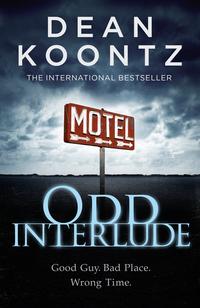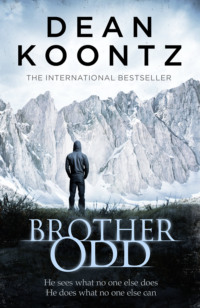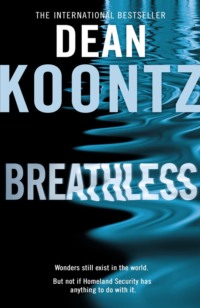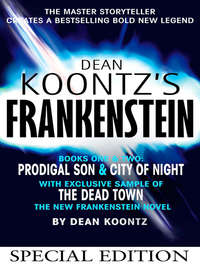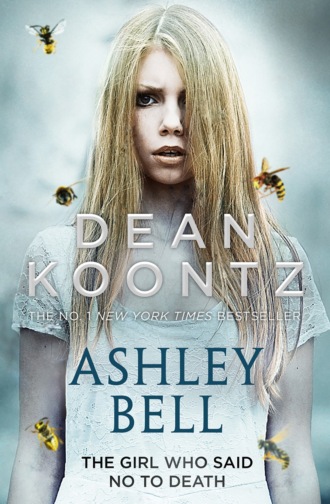
Полная версия
Ashley Bell
The vintage dinette chairs featured chrome-plated steel legs and seats upholstered in black vinyl. Very 1950s. She liked the ’50s. The world hadn’t gone crazy yet. As she sat at a chromed table with a red Formica top, paging through the newspaper, she drank her first coffee of the day, which she called her “wind-me-up cup.”
To compete in an age when electronic media delivered the news long before it appeared in print, the publisher of this paper chose to spend only a few pages on major world and national events in order to reserve space for long human-interest stories involving county residents. As a novelist, Bibi approved. Like good fiction, the best history books were less about big events than about the people whose lives were affected by forces beyond their control. However, for every story about a wife fighting indifferent government bureaucrats to get adequate care for her war-disabled husband, there was another story about someone who acquired an enormous collection of weird hats or who was crusading to be allowed to marry his pet parrot.
Like her first cup, her second coffee was black, and Bibi drank it as she ate a chocolate croissant. In spite of all the propaganda, she didn’t believe that oceans of coffee or a diet rich in butter and eggs was unhealthy. She ate what she wanted, almost in a spirit of defiance, remaining trim and healthy. She had one life, and she meant to live it, bacon and all.
As she ate a second croissant, she got a bite that tasted as rancid as spoiled milk. She spat it onto her plate and wiped her tongue with a napkin.
The bakery she frequented had always been reliable. She could see nothing wrong with the wad of pastry that she had spit out. She sniffed the croissant, but it smelled all right. No visible foreign substance tainted it.
Tentatively, she took another bite. It tasted fine. Or did it? Maybe the faintest trace of … something. She put down the croissant. She had lost her appetite.
That day’s newspaper was thick with weird-hat collectors and the like. She put it aside. Carrying a third cup of coffee, she went to her office in the larger of the apartment’s two bedrooms.
At her computer, when she retrieved the unfinished short story she’d been writing on and off for a few weeks, she stared for a while at her byline: Bibi Blair.
Her parents had named her Bibi, not because they were cruel or indifferent to the travails of a child saddled with an unusual name, but because they were lighthearted to a fault. Bibi, pronounced Beebee, came from the Old French beubelot, meaning toy or bauble. She was no one’s toy. Never had been, never would be.
Another name derived from beubelot was Bubbles. That would have been worse. She would have had to change Bubbles to something less frivolous or otherwise become a pole dancer.
By her sixteenth birthday, she was accustomed to her name. By the time she was twenty, she thought Bibi Blair had a quirky sort of distinction. Nevertheless, sometimes she wondered if she would be taken seriously, as a writer, with such a name.
She scrolled down the page from the byline and stopped at the second paragraph, where she saw a sentence that needed revision. When she began to type, her right hand served her well, but the left fumbled over the keys, scattering random letters across the screen.
Her surprise turned to alarm when she realized that she could not feel the keys beneath her spasming fingers. The sense of touch had deserted them.
Bewildered, she raised the traitorous hand, flexed the fingers, saw them move, but couldn’t feel them moving.
Although coffee had entirely rinsed away the rancid taste that earlier had spoiled her enjoyment of the second croissant, the same foulness filled her mouth again. She grimaced in disgust and, with her right hand, reached for the coffee. The rim of the cup rattled against her teeth, but the brew once more washed her tongue clean.
Her left hand slipped off the keyboard, onto her lap. For a moment, she couldn’t move it, and in panic she thought, Paralysis.
Suddenly a tingling filled the hand, the arm, not that vibratile numbness that followed a sharp blow to the elbow, but a crawling sensation, as if ants were swarming through flesh and bone. As she rolled her chair away from the desk and got to her feet, the tingling spread through the entire left side of her body, from scalp to foot.
Although Bibi didn’t know what was happening to her, she sensed that she was in mortal peril. She said, “But I’m only twenty-two.”
3
The Salon
NANCY BLAIR ALWAYS BOOKED THE EARLIEST appointment at Heather Jorgenson’s six-chair salon in Newport Beach because it was her considered opinion that even the best stylists, like Heather, did less dependable work as the day wore on. Nancy would no sooner have her hair cut in the afternoon than she would schedule an after-dinner face-lift.
Not that she needed plastic surgery. At forty-eight, she looked thirty-eight. At worst thirty-nine. Her husband—Murphy, known to all as Murph—said that if she ever let a cosmetic surgeon mess with her face, he would still love her, but he’d start calling her Cruella de Vil, after the stretched-tight villainess in 101 Dalmatians.
She had great hair, too, thick and dark, without a fleck of gray. She got it cut every three weeks because she liked to maintain a precise look.
Her daughter, Bibi, had the same luxurious dark-brown hair, almost black, but Bibi wore hers long. The dear girl was always gently pressing her mother to move on from the short and shaggy style. But Nancy was a doer, a goer, always on the run, and she didn’t have the patience for the endless fussing that was required to look good with a longer do.
After wetting Nancy’s hair with a spray bottle, Heather said, “I read Bibi’s novel, The Blind Man’s Lamp. I really liked it.”
“Oh, honey, my daughter has more talent in one pinkie than most other writers have in their fingers and their thumbs.” Even as she made that declaration with unabashed pride, Nancy realized that it was less than eloquent, even a little silly. Whatever the source of Bibi’s talent for language, it hadn’t come with her mother’s genes.
“It should have been a bestseller,” Heather said.
“She’ll get there. If that’s what she wants. I don’t know if it is. I mean, she shares everything with me, but she’s guarded about her writing, what she wants. A mysterious girl in some ways. Bibi was mysterious even as a child. She was like eight when she made up these stories about a community of intelligent mice that lived in tunnels under our bungalow. Ridiculous stories, but she could almost make you believe them. In fact, we thought for a while she believed in those damn mice. We almost got her therapy. But we realized that she was just Bibi being Bibi, born to tell stories.”
As an ardent consumer of magazines that chronicled the lives of celebrities in plenty of photos and minimal prose, Heather perhaps had not heard Nancy after the third sentence of that long ramble. “But, gee, why wouldn’t she want to be a bestseller—and famous?”
“Maybe she does. But it’s not why she writes. She writes because she has to. She says her imagination is like a boiler that’s all the time building up too much pressure. If she doesn’t let out some of the steam every day, it’ll explode and blow off her head.”
“Wow.” Heather’s face in the mirror, above Nancy’s face, loomed wide-eyed and chipmunky. She was a cute girl. She would have been even cuter if she’d had her upper incisors brought into line with braces.
“Bibi doesn’t mean that literally, of course. Her head isn’t going to explode any more than there were intelligent mice living under our bungalow back in the day.”
Heather’s insistent teeth lent a comic quality to her expression of concern. She was adorable.
Murph had once declared that if a girl was cute enough, some men found an overbite sexy. Ever since, Nancy had been wary of any attractive woman in her husband’s life who needed orthodontal work. Murph had never met Heather. If Nancy had anything to say about it, he never would. Not that he cheated. He didn’t. He wouldn’t. Maybe he didn’t believe that his wife would castrate him with bolt cutters, as she’d sworn she would, but he was smart enough to know that the consequences of infidelity would be ugly.
“Close your eyes,” Heather said, and Nancy closed them, and the spray bottle of water made a spritzing sound. Then a little fragrant mousse. Then a final blow-dry and shaping with a brush.
When her hair was done, it was perfect, as always. Heather was such a talented cutter, she wouldn’t refer to herself as a beautician or a hairstylist. Her card identified her as a coiffeuse, and that little pretension, so Newport Beach, was in her case justified.
Nancy paid and tipped. She was assuring her coiffeuse that she would pass along the good review of The Blind Man’s Lamp to the author when she was interrupted by her phone’s current ringtone—a few bars of that old Bobby McFerrin song “Don’t Worry, Be Happy.” She checked the caller ID, took the call, and said, “Bibi, baby.”
As if from beyond some barrier more formidable than distance, Bibi said, “Mom, something’s wrong with me.”
4
Searching for the Silver Lining
BIBI WAS SITTING IN A LIVING-ROOM ARMCHAIR, her purse on her lap, trying to dispatch the creepy head-to-foot tingling sensation with positive thinking, when her mother burst into the apartment as if she were leading a style-police SWAT team intent on ferreting out people wearing unimaginative coordinated ensembles. Nancy looked splendidly eclectic in a supple-as-cloth black-leather sports-jacket-cut men’s coat from St. Croix, an intricately patterned ecru top by Louis Vuitton, black Mavi jeans with subtle and carefully crafted areas of wear, and black-and-red athletic shoes by some designer whose name Bibi could not recall.
She didn’t share her mother’s obsession with fashion, as her off-brand jeans and long-sleeved T-shirt attested.
As Nancy crossed the room toward the armchair, a rush of words spilled from her. “You’re pale, you’re positively gray, oh, my God, you look terrible.”
“I do not, Mom. I look normal, which spooks me worse than if I were stone-gray with bleeding eyes. How can I look normal and have these symptoms?”
“I’m going to call nine-one-one.”
“No, you’re not,” Bibi said firmly. “I’m not going to make a spectacle of myself.” Using her good right hand, she pushed herself up from the chair. “Just drive me to the hospital ER.”
Nancy looked at her daughter as she might have regarded some pathetic truck-stricken creature lying crippled at the side of a highway. Her eyes blurred with tears.
“Don’t you dare, Mother. Don’t you cry at me.” Bibi indicated a small drawstring bag beside the armchair. “Can you get that for me? It’s pajamas, toothbrush, overnight things in case I have to stay till tomorrow. No way I’m going to wear one of those tie-in-the-back hospital gowns with my butt hanging out.”
Her voice as quivery as aspic, Nancy said, “I love you so much.”
“I love you, too, Mom.” Bibi started toward the door. “Come on, now. I’m not afraid. Not much. You always say, ‘It’ll be what it’ll be.’ Say it, so live it. Let’s go.”
“But if you’ve had a stroke, we should call nine-one-one. Every minute matters.”
“I haven’t had a stroke.”
Hurrying ahead of her daughter, opening the door but blocking the exit, Nancy said, “On the phone, you told me your left side is paralyzed—”
“Not paralyzed. Tingling. As if fifty cell phones, set on mute, were taped to my body, vibrating all at once. And my left hand is a little weak. That’s all.”
“Sounds like a stroke. How do you know it isn’t?”
“It’s not a stroke. My speech isn’t slurred. My vision’s okay. No headache. No confusion. And I’m only twenty-two, damn it.”
Nancy’s expression softened from anxious dread to what might have been chagrin as she realized that she was alarming rather than assisting her daughter. “Okay. Yes, you’re right. I’ll drive you.”
The third-floor apartments opened onto a covered balcony, and Bibi kept her right hand on the railing as they moved toward the north end. A pleasantly cool day. Songbirds celebrating. In the courtyard, the palms and ferns rustled faintly in the mild breeze. Phantom silvery fish of sunlight schooled back and forth across the water in the swimming pool, and the simple scene was profoundly beautiful as it had never appeared to her before.
When they came to the end of the balcony, Nancy said, “Honey, are you sure you can do stairs?”
The open iron staircase featured pebbled-concrete treads. The symmetry of the stairs, the grace with which they descended to the courtyard, qualified them as sculpture. Bibi had not previously seen the stairs as art; the prospect of perhaps never seeing them again must have given her this new perspective.
“Yeah, I can do stairs,” Bibi impatiently assured her mother. “I just can’t dance down them.”
She negotiated flight after flight without a serious incident, except that three times her left foot did not move when it should have, and she needed to drag it from one tread to the next.
In the parking lot, as they approached a BMW with vanity license plates that announced TOP AGENT, Nancy started for the front passenger door, evidently remembered that coddling was not wanted, and hurried around to the driver’s side of the vehicle.
To Bibi’s relief, she found that getting into the car was no more difficult than boarding the gently rocking gondola of a Ferris wheel.
Starting the engine, Nancy said, “Buckle up, sweetie.”
“I am buckled up, Mother.” Hearing herself, she felt like an adolescent, dependent and a little whiny, and she loathed being either of those things. “I’m buckled.”
“Oh. You are. Yes, of course you are.”
Nancy exited the parking lot without coming to a full stop, turned right on the street, and accelerated to get through a nearby intersection before the traffic light changed.
“It would be ironic,” Bibi said, “if you killed us trying to get to a hospital.”
“Never had an accident, honey. Only one ticket, and that was in a totally fraudulent, tricked-up speed trap. The cop was a real smog monster, a mean-eyed kak who wouldn’t know glassout conditions from mushburgers.”
Surfer lingo. A smog monster was an inlander. A kak was a dick. Glassout was when the ocean flowed unruffled, perfect for surfing, and mushburgers were the kind of waves that made surfers think about leaving the water for a skateboard.
Sometimes it was difficult for Bibi to keep in mind that her mother had long ago been a surfer girl supreme, riding tubes, taking the drop with the best of them. Nancy still loved the sun-baked sand and the surf. From time to time, she paddled out and caught some waves. But of the words that defined her now, surfer was not as high on the list as it had once been. These days, other than when she was on the beach, surfspeak crept into her vocabulary only when she had a beef about one authority figure or another.
She concentrated on the traffic, no tears in her eyes anymore, jaw set, brow creased, checking out the rearview mirror, the side mirrors, switching lanes more often than usual, totally into the task, as she otherwise was only when she went after a real-estate listing or thought that a property sale might be on the verge of closing.
“Oh, crap.” Bibi snatched a few tissues from the console box and spat into them twice, without effect.
“What is it, what’re you doing?”
“That disgusting taste.”
“What taste?”
“Like spoiled milk, rancid butter. It comes and goes.”
“Since when?”
“Since … this started.”
“You said your only symptoms were the weak hand, the tingling.”
“I don’t think it’s a symptom.”
“It’s a symptom,” her mother declared.
In the distance, the hospital towered over other structures, and at the sight of it, Bibi acknowledged to herself that she was more afraid than she had wanted to admit. The architecture was unexceptional, bland, and yet the closer they drew to the place, the more sinister it appeared.
“There’s always a silver lining,” she assured herself.
Her mother sounded anxious and dubious: “Is there?”
“For a writer, there always is. Everything is material. We need new material for our stories.”
Nancy accelerated through a yellow traffic light and turned off the street into the medical complex. “It’ll be what it’ll be,” she said, almost to herself, as if those words were magical, each of them an abraxas that would ward off evil.
“Please don’t say that to me again,” Bibi requested, more sharply than she intended. “Not ever again. You’re always saying it, and I don’t want to hear it anymore.”
Following an ER sign that directed them off the main loop and to the left, Nancy glanced at her daughter. “All right. Whatever you want, honey.”
Bibi at once regretted snapping at her mother. “I’m sorry. So sorry.” The first two words came out all right. But she heard the distortion in the last two, which sounded like show sharry.
As they pulled to a stop in front of the emergency entrance, Bibi admitted to herself the reason she hadn’t called 911: She possessed a writer’s well-honed understanding of story construction. Perhaps from the moment that her left hand had failed to engage the computer keyboard as she directed it, and surely from the moment the tingling had begun, she’d known where this was going, where it had to go, which was into a dark place. Every life was a story, after all, or a collection of stories, and not all of them tapered gracefully to a happy ending. She had always assumed her life would be a tale of happiness, that she would craft it as such, and during the onset of her symptoms, she had been reluctant to consider that her assumption might be naïve.
5
Pet the Cat
ALTHOUGH SPRING HEAT HADN’T YET RELIABLY settled over the Southern California coast, Murphy Blair went to work that morning wearing sandals, boardshorts, a black T-shirt, and a blue-and-black plaid Pendleton shirt worn open, with the sleeves rolled up. His shock of sandy-brown hair was shot through with blond streaks, legitimate sun bleaching, not bottle-born, because even on low-Fahrenheit days, he found the sun for a few hours. He was walking proof that, with sufficient obsession and contempt for melanoma, a summer tan could be maintained year-round.
His shop, Pet the Cat, was on Balboa Peninsula, the land mass that sheltered Newport Harbor from the ocean, in the vicinity of the first of two piers. The name of the store referred to the motion that surfers made when they were crouched on their boards, stroking the air or water as if to smooth their way through a section.
The display windows were full of surfboards and bitchin’ shirts like Mowgli tees, Wellen tees, Billabong, Aloha, Reyn Spooner. Murph sold everything from Otis eyewear with mineral-glass lenses to Surf Siders shoes, from wetsuits to Stance socks featuring patterns based on the art of surfing champion John John Florence.
At fifty, Murph lived his work, worked to play, played to live. When he arrived at Pet the Cat, the door was unlocked, the lights were on, and Pogo was standing behind the counter, intently reading the instruction pamphlet for Search, the GPS surf watch by Rip Curl.
Glancing up at his boss, Pogo said, “I’m gonna get one of these here for damn sure.”
Three years earlier, he escaped high school with a perfect two-point grade average and foiled his parents’ attempt to force him onto a college track. He lived frugally with two other surf rats, Mike and Nate, in a studio apartment above a thrift shop in nearby Costa Mesa, and drove a primer-gray thirty-year-old Honda that looked as though it was good for nothing more than being a target car in a monster-truck demolition derby.
Sometimes an underachieving wanker took refuge in the surfing culture and remained largely or entirely womanless until he died with his last Social Security check uncashed. For two reasons, Pogo didn’t have that problem. First, he was a wave king, fearless and graceful on the board, eager to master even the huge monoliths that had come with Hurricane Marie, admired for his style and heart. He might have been a champion if he’d possessed enough ambition to participate in competitions. Second, he was so gorgeous that when he passed, women tracked him as if their heads were attached to their necks with ball-bearing swivel hinges.
“You gonna give me the usual discount on this?” Pogo asked, indicating the GPS surf watch.
Murph said, “Sure, all right.”
“Twelve weekly payments, zero interest?”
“What am I—a charity? It’s not that expensive.”
“Eight weeks?”
Murph sighed. “Okay, why not.” He pointed at the flat blank screen of the large TV on the wall behind the counter, which should have been running vintage Billabong surf videos to lend atmosphere to the shop. “Tell me that’s not on the fritz.”
“It’s not. I just sort of forgot about it. Sorry, bro.”
“Bro, huh? Do you love me like a brother, Pogo?”
“Totally, bro. My real brother, Clyde, he’s a brainiac stockbroker, might as well be from Mars.”
“His name’s Brandon. What’s with this Clyde?”
Pogo winked. “You’ll figure it out.”
Murph took a deep breath. “You want the shop to prosper?”
As he fired up the Billabong videos, Pogo said, “Sure, yeah, I want you to rule the scene, bro.”
“Then you’d help my business a lot if you went to work at some other surf shop.”
Pogo grinned. “I’d be crushed if I thought you meant that. But, see, I get your dry wit. You should do stand-up.”
“Yeah, I’m a riot.”
“No, really. Bonnie thinks you’re hilarious, too.”
“Bonnie, your nose-to-grindstone sister who works her butt off to keep that restaurant afloat? Oh. I see. Bonnie and Clyde. Anyway, she’s another brainiac. You mean you and her share a sense of humor?”
Pogo sighed. “Hey, when I say ‘brainiac,’ I don’t use the term pejoratively. I have lots in common with my twin siblings.”
“‘Pejoratively,’ huh? Sometimes you give yourself away, Pogo.” Murph’s cell phone rang, and he checked the caller ID. Nancy. He said, “What’s up, sugar?”
A chill climbed his spine and found his heart as his wife said, “I’m scared, baby. I’m afraid Bibi’s had a stroke.”
6
The Frightening Pace of Examination
ON A TUESDAY MORNING, THE ER WASN’T AS BUSY as it would be on the 7:00-P.M.-to-3:00-A.M. shift. The night would bring those injured by drunk drivers, victims of muggers, battered wives, and all manner of aggressive or hallucinating druggies sliding along the razor’s edge of an overdose. When Bibi arrived with her mother, only five people were in the waiting room, none of them bleeding profusely.
At the moment, the triage nurse was actually an emergency-care technician named Manuel Rivera, a short, stocky man in hospital blues. He checked her pulse and took her blood pressure as he listened to her recite her symptoms.
Bibi slurred a few words, but for the most part her speech was clear. She felt better and safer, being in a hospital, until Manuel’s sweet face, almost a Buddha face, darkened with worry and he guided her to a wheelchair. With apparent urgency, he rolled her through a pair of automatic doors into the ER ahead of the other people who were waiting for treatment.
Each emergency-room bay was a cubicle with a gray vinyl-tile floor and three pale-blue walls and one glass wall that faced the hallway. Toward the head of the bed stood a heart monitor and other equipment, awaiting use.



